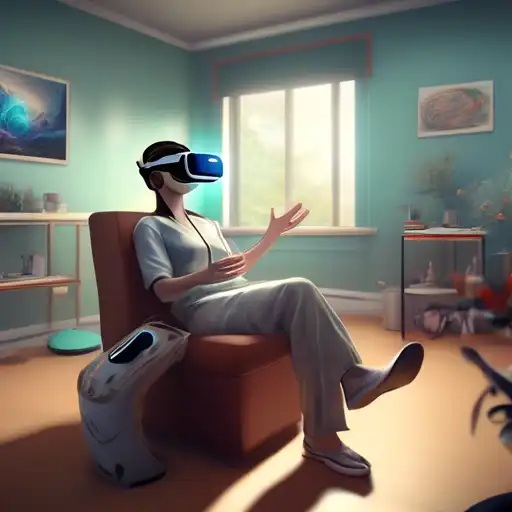The Transformative Power of Virtual Reality in Therapeutic Practices
Virtual Reality (VR) technology has transcended its initial entertainment-centric applications to become a groundbreaking tool in the field of therapy. By creating immersive, controlled environments, VR offers unique opportunities for treating a variety of psychological and physical conditions. This article explores the innovative ways VR is being utilized in therapeutic settings, highlighting its benefits and potential for future applications.
Understanding VR Therapy
VR therapy involves the use of virtual reality technology to simulate environments for therapeutic purposes. It allows patients to confront and work through their issues in a safe, controlled setting. This method has been particularly effective in treating phobias, PTSD, anxiety disorders, and even physical rehabilitation.
Key Applications of VR in Therapy
- Exposure Therapy: VR enables patients to face their fears in a virtual environment, making it a powerful tool for treating phobias and PTSD.
- Pain Management: By distracting the brain with immersive experiences, VR has shown promise in reducing pain perception during medical procedures.
- Physical Rehabilitation: VR games and simulations can motivate patients to engage in physical therapy exercises, improving outcomes.
- Social Skills Training: Individuals with autism or social anxiety can practice and develop social skills in a virtual setting.
The Benefits of VR Therapy
VR therapy offers several advantages over traditional methods, including accessibility, customization, and the ability to simulate scenarios that would be difficult or impossible to recreate in real life. Patients can repeatedly practice coping strategies in a variety of simulated environments, enhancing the therapy's effectiveness.
Challenges and Considerations
Despite its potential, VR therapy faces challenges such as high costs, the need for specialized equipment, and limited research on long-term effects. However, as technology advances and becomes more affordable, these barriers are expected to diminish.
The Future of VR in Therapy
The future of VR therapy is bright, with ongoing research exploring its applications in treating a wider range of conditions. Innovations in VR technology and artificial intelligence are expected to further enhance its therapeutic potential, making it an integral part of mental health and physical rehabilitation treatments.
As we continue to uncover the capabilities of virtual reality in therapy, it's clear that this technology holds the promise of transforming therapeutic practices. By offering innovative solutions to traditional challenges, VR is paving the way for more effective and accessible treatments.
